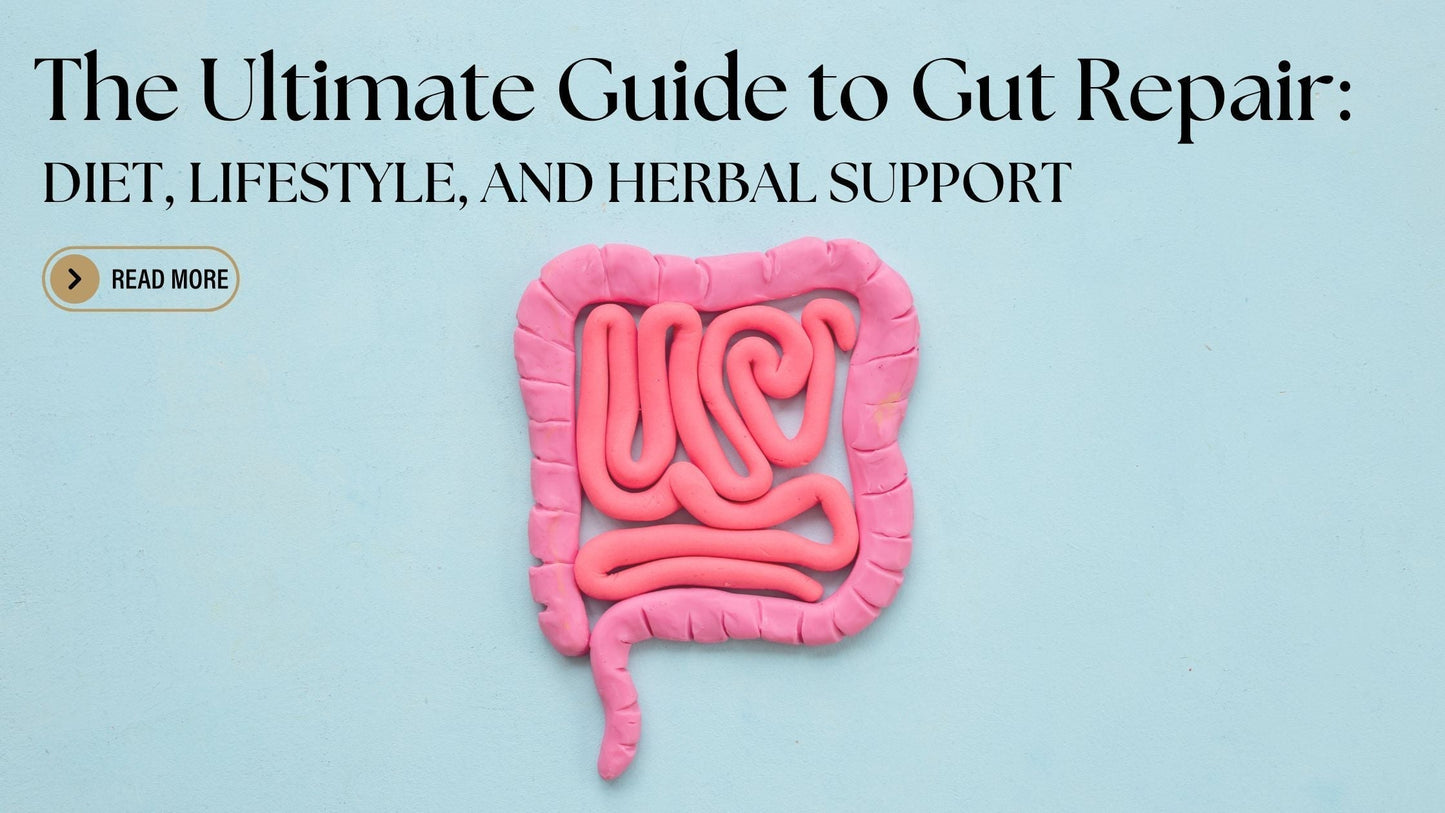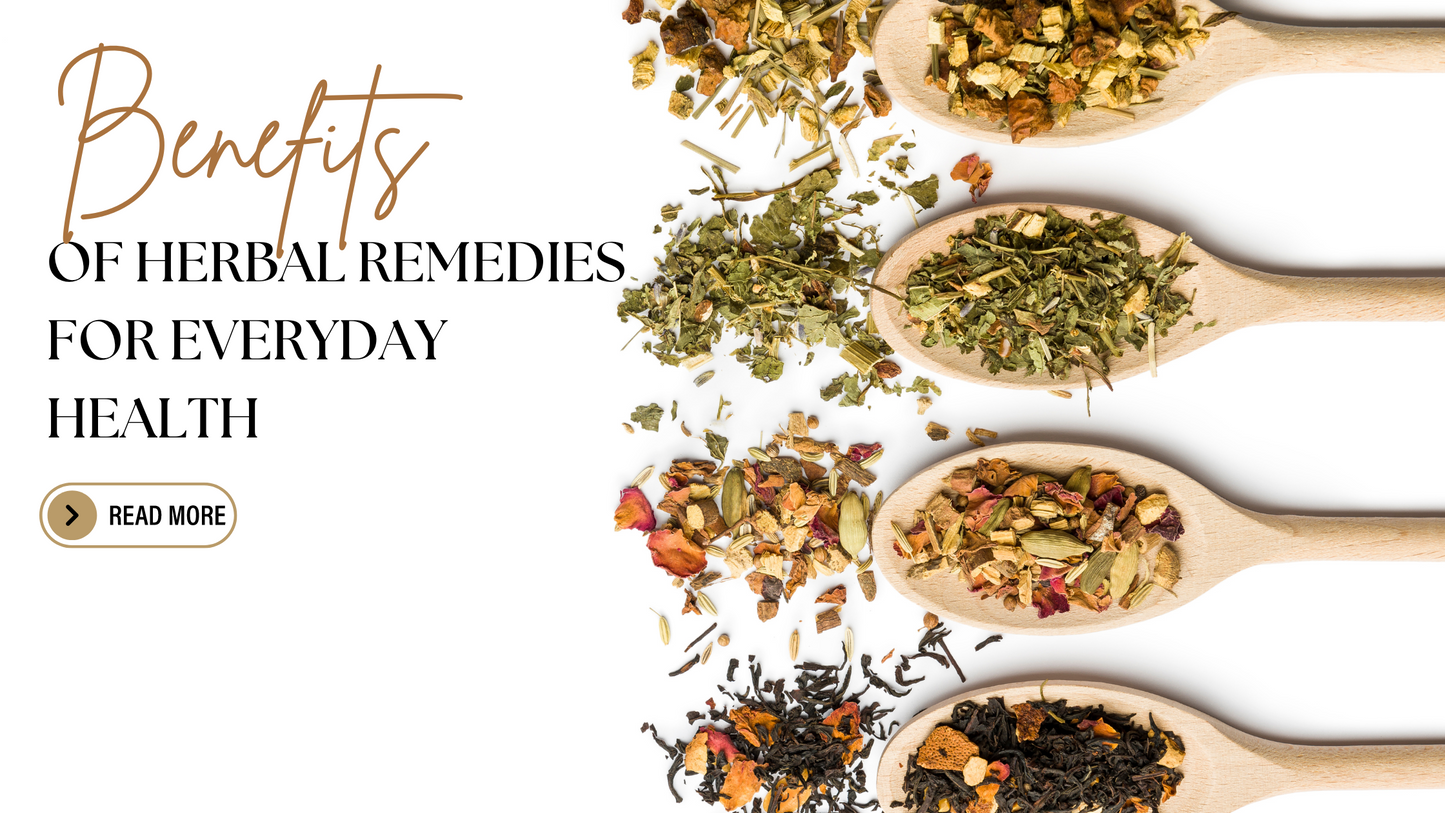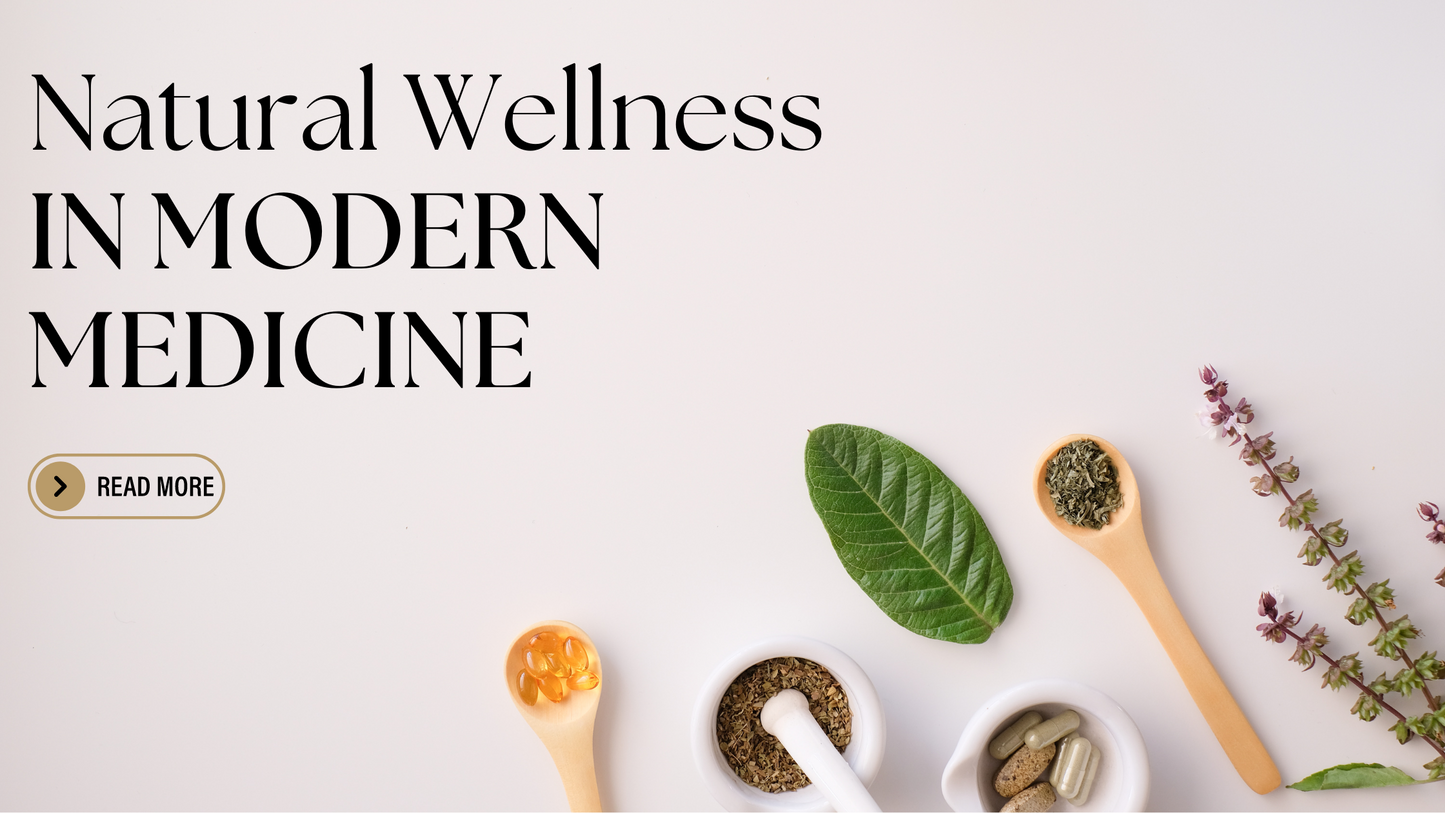
Your gut is the foundation of your overall health, influencing everything from digestion to immunity and even mental clarity. But with today’s modern lifestyle—processed foods, stress, medications, and environmental toxins—gut health can easily become compromised. If you’ve been experiencing bloating, indigestion, food sensitivities, or fatigue, your gut may be calling for support.
The good news? With the right combination of diet, lifestyle, and herbs, you can restore balance and heal your gut naturally.
Signs Your Gut Needs Repair
A damaged or imbalanced gut can manifest in many ways, including:
- Bloating, gas, or indigestion
- Acid reflux or heartburn
- Constipation or diarrhea
- Food intolerances or sensitivities
- Skin issues (acne, eczema)
- Low energy and brain fog
- Frequent colds or weak immunity
- Anxiety or mood imbalances
If you’re experiencing any of these, don’t worry. Your gut is incredibly resilient and, with the right care, can heal itself.
Step 1: Eat for Gut Health
The foods you eat can either nourish and heal your gut or cause inflammation and damage. Focus on whole, nutrient-dense foods while eliminating gut irritants.
Best Foods for Gut Repair
- Healthy Fats: Avocados, olive oil, coconut oil, and ghee help reduce inflammation.
- Root Vegetables: Sweet potatoes, carrots, and beets provide prebiotic fiber to nourish good bacteria.
- Non-Starchy Veggies: Broccoli, zucchini, and spinach are rich in antioxidants and fiber.
- Bone Broth & Collagen: These help rebuild the gut lining and reduce inflammation.
- Fermented Foods: Sauerkraut, kimchi, yogurt, kefir, and miso introduce beneficial probiotics.
- Soaked & Sprouted Grains: Quinoa, rice, and oats (if tolerated) are easier to digest.
- Nuts & Seeds: Flaxseeds, chia seeds, and walnuts provide gut-friendly omega-3s.
Foods to Avoid (Gut Irritants)
- Processed foods and refined sugar
- Gluten (if sensitive)
- Dairy (for some individuals)
- Alcohol and excessive caffeine
- Seed oils (canola, soybean, sunflower)
- Artificial sweeteners and additives
Step 2: Lifestyle Changes for a Healthy Gut
A strong gut isn’t just about what you eat—your daily habits also play a crucial role in digestion and gut balance.
Mindful Eating
- Eat slowly and chew thoroughly to break down food properly.
- Avoid distractions while eating—no phones or TV.
- Stop eating before you feel full to prevent digestive strain.
Manage Stress
Your gut and brain are deeply connected, meaning stress can disrupt digestion and gut flora. Reduce stress with:
- Meditation and breath work to activate the parasympathetic nervous system.
- Gentle movement like yoga or walking instead of high-intensity workouts.
- Adequate sleep (7–9 hours per night) to allow the gut to heal.
Stay Active
Regular movement keeps digestion flowing and prevents sluggish bowels. Try:
- Walking after meals to aid digestion.
- Strength training for metabolic health.
- Rebounding (mini-trampoline) to stimulate the lymphatic system.
Hydration is Key
Dehydration slows digestion and causes constipation. Drink at least half your body weight in ounces of water daily, and add:
- Warm lemon water in the morning to stimulate digestion.
- Herbal teas like our Gut Repair Tea to soothe the gut lining.
Step 3: Heal with Herbs
Herbs have been used for centuries to support digestion, reduce inflammation, and repair the gut lining. Our Gut Repair Tea blends three powerful herbs specifically for gut healing:

Chamomile: Calms & Soothes
- Reduces bloating and cramping.
- Eases acid reflux and indigestion.
- Promotes relaxation, which supports digestion.
Plantain Leaf: Heals & Protects
- Coats and repairs the gut lining.
- Reduces inflammation and irritation.
- Has mild antimicrobial properties to balance gut bacteria.
Marshmallow Root: Ultimate Gut Soother
- Forms a protective barrier over the gut lining.
- Soothes acid reflux, ulcers, and leaky gut.
- Hydrates and promotes healthy mucus production.
Other herbs that complement gut healing:
- Ginger – Improves digestion and reduces nausea.
- Fennel – Relieves bloating and gas.
- Licorice Root – Soothes and repairs the gut lining.
- Slippery Elm – Coats the stomach to reduce irritation.
Step 4: Ayurvedic Wisdom for Gut Health
Ayurveda, the ancient Indian system of medicine, emphasizes digestive fire (Agni) as the key to health. When Agni is strong, digestion is smooth, and nutrients are absorbed efficiently. When weak, digestion slows, leading to bloating, toxins (Ama), and gut issues.
How to Strengthen Your Digestive Fire (Agni)
- Eat warm, cooked foods – Avoid cold and raw foods, which weaken digestion.
- Use digestive spices – Ginger, cumin, and turmeric help fire up digestion.
- Avoid overeating – Leave space in your stomach for proper digestion.
- Drink warm water – Cold drinks extinguish Agni, slowing digestion.
- Establish a routine – Eat meals at the same time each day for optimal digestion.
Final Thoughts: Sip Your Way to a Healthy Gut
Healing your gut isn’t about quick fixes—it’s about long-term nourishment and balance. By making small dietary changes, adopting gut-friendly habits, and incorporating healing herbs, you can restore gut health naturally.
Our Gut Repair Tea is the perfect companion on your journey to a happy, healthy gut. With the soothing benefits of chamomile, plantain leaf, and marshmallow root, this gentle yet powerful blend helps reduce inflammation, repair the gut lining, and support digestion.

Take the first step toward gut healing today!



